Got To Give It Up: 15 Songwriters And Producers That Shaped The Motown Sound
The engine that drove the Motown machine was made up of the songwriters and producers who worked behind the scenes to create the Motown sound.
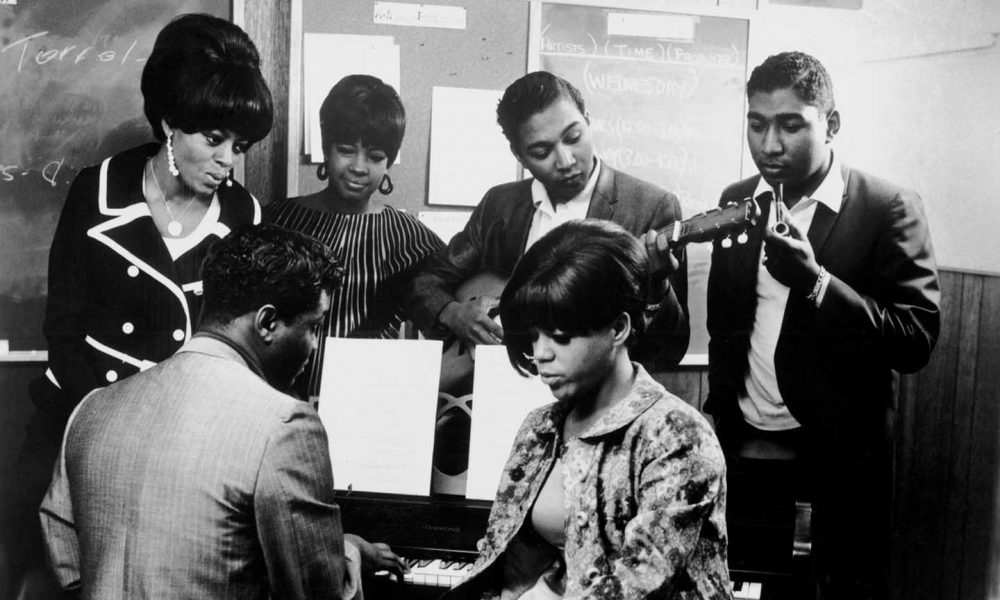
Emanating from Detroit, aka Motor City, the Motown sound forever transformed the landscape of soul and pop music. For the last 60 years, guided by the vision of founder Berry Gordy, Motown’s music has transcended generations and left an indelible imprint upon culture all over the world. While the label created superstars like Diana Ross And The Supremes, Four Tops, The Temptations, Gladys Knight And The Pips, and a plethora of others, the major forces behind the tremendous success of “Hitsville USA” were the songwriters and producers who worked behind the scenes to give the world “The Sound Of Young America.”
Here are 15 songwriters and producers who shaped the Motown sound.
15: Ivy Jo Hunter
Ivy Jo Hunter is one of the unsung heroes of Motown. Trained in orchestral music, he began as a session player, then became a principal musician in the Motown house band before settling in as a songwriter and producer. He co-wrote “Ask The Lonely” and “Loving You Is Sweeter Than Ever” by Four Tops, Martha And The Vandellas’ anthem “Dancing In The Street” and The Spinners’ ‘I’ll Always Love You’, and he produced the 1968 Top 40 hit single “You” for Marvin Gaye. As an integral part of the Motown machine, Hunter accomplished much with little fanfare.
Check out: “Dancing In The Street”
14: Clarence Paul
Clarence Paul is credited with mentoring “Little” Stevie Wonder, but he was also a writer and producer on some legendary Motown songs. He composed “Hitch Hike” for Marvin Gaye and co-composed the energetic “Fingertips,” which, as the live recording “Fingertips – Part 2,” Stevie Wonder took No.1 on the Billboard Hot 100, becoming the youngest artist ever to top the chart. Paul and Wonder began a fruitful songwriting partnership, resulting in “Until You Come Back To Me (That’s What I’m Gonna Do)” and “Hey Love,” and he produced Wonder’s version of Bob Dylan’s “Blowin’ In The Wind,” which went to No.1 on the R&B chart and No.9 on the pop charts in summer of 1966. Clarence Paul died in 1995, in Los Angeles, with Stevie Wonder at his bedside.
Check out: “Hitch Hike”
13: Harvey Fuqua
If Harvey Fuqua did nothing but establish the R&B and doo-wop group The Moonglows, with whom Marvin Gaye got his start, that would have been enough. But Fuqua was instrumental in the early development of the Motown sound. While married to Gwen Gordy, sister of Berry Gordy, he distributed Motown’s first hit single, Barrett Strong’s “Money (That’s What I Want)”, on their Anna Records imprint. When Fuqua sold Anna Records to Berry Gordy, he became a songwriter and producer at Motown. Fuqua brought Tammi Terrell to the label and began to produce her classic duets with Marvin Gaye, including ”Ain’t No Mountain High Enough,” “Your Precious Love,” “If This World Were Mine” and “If I Could Build My Whole World Around You.” A true pioneer in African-American music, Harvey Fuqua died in 2010.
Check out: “Ain’t No Mountain High Enough”
12: Syreeta Wright
Syreeta Wright was not only the muse, but the creative partner of Stevie Wonder as the latter was developing into one of the leading masterminds in music history. Together they wrote ‘It’s A Shame’ (recorded by The Spinners), “Signed, Sealed, Delivered (I’m Yours)” and Wonder’s 1971 album, Where I’m Coming From – the first project on which Wonder had full creative control, and also composed the sophisticated “If You Really Love Me,” which entered the Top 10 on the Billboard Pop Charts. Over the course of her career, Wright would continue to work with Wonder; she also made significant recordings with keyboardist extraordinaire Billy Preston and focused on her own solo work until her death in 2004.
Check out: “If You Really Love Me”
11: Johnny Bristol
A protégé of Harvey Fuqua, Johnny Bristol was a major component of the Motown sound of the late 60s and early 70s. He penned Motown standards such as Gladys Knight And The Pips’ “I Don’t Want To Do Wrong,” Jr Walker And The All-Stars’ “What Does It Take (To Win Your Love)” and David Ruffin’s “My Whole World Ended (The Moment You Left Me).” Bristol also holds the distinction of being producer and co-writer of the final singles for the Diana Ross-era Supremes and Smokey Robinson-era Miracles. With The Supremes’ “Someday We’ll Be Together” (1969), and The Miracles’ “We’ve Come Too Far to End It Now” (1972), Bristol gave Ross and Robinson fitting swansongs as they transitioned to solo acts. Bristol later resumed his own recording career, and continued to write and produce until he passed away in 2004.
Check out: “Someday We’ll Be Together”
10: Frank Wilson
When Motown moved Detroit to Los Angeles, writer/producer Frank Wilson was an integral part of the transition, joining Motown in the mid-60s at its newly opened office on the West Coast. Wilson wrote several hits, among them “Chained” (for Marvin Gaye) and “You’ve Made Me So Very Happy,” (Brenda Holloway), which, two years later, become a gigantic hit for Blood, Sweat And Tears. As The Supremes’ music began to reflect changes in society, Wilson penned “Love Child,” which soared to No.1 on the Billboard 100. He composed “All I Need” for Four Tops’ thematic Still Waters album and also handled production on The Supremes’ first albums of their post-Diana Ross era. Wilson continued his hot streak during the 70s, penning big hits with Eddie Kendricks (“Keep On Truckin,” “Boogie Down,” “Shoeshine Boy”), which took Motown into the disco era. After leaving the label in 1976, Wilson became a born-again Christian. He continued to write and produce R&B and gospel music until his death, in 2012.
Check out: “Keep On Truckin”
9: William “Mickey” Stevenson
Every great record label needs an A&R person with an ear for songwriting and producing. At Motown, Mickey Stevenson was the man for the job. After his audition as a singer didn’t go well, Stevenson took Berry Gordy up on his offer to be the label’s A&R man. One of the most important brains behind the Motown operation, Stevenson oversaw classics like “Dancing In The Street.” which he co-wrote with Ivy Jo Hunter and Marvin Gaye; “It Takes Two,” co-written with Sylvia Moy for Gaye and Kim Weston, Stevenson’s former wife; “Ask the Lonely,” for Four Tops; Jimmy Ruffin’s “What Becomes Of The Brokenhearted”, and Gaye’s “Stubborn Kind Of Fellow.” among others. Of all his noteworthy accomplishments as a songwriter and producer, Stevenson’s greatest feat may have been establishing the Motown house band, the legendary Funk Brothers.
Check out: “What Becomes Of The Brokenhearted”
8: Lionel Richie
Lionel Richie came to Motown as a member and primary writer/producer of the funk band Commodores, and was as comfortable writing ballads (“Just To Be Close,” “Easy,” “Three Times A Lady”) as he was funk hits (“Brick House,” “Lady (You Bring Me Up),” “Too Hot Ta Trot”). His duet with fellow Motown superstar Diana Ross, “Endless Love,” is one the most beloved ever written, and sparked Richie’s solo career.
After leaving Commodores, Richie catapulted into superstardom in the 80s. In 1982, the first single from his eponymous debut album, “Truly<” topped the Billboard Hot 100, while “You Are” and “My Love” both reached the Top 5. His next album, Can’t Slow Down, was even bigger, producing two No.1 hits, “All Night Long” and “Hello,” and earning him a Grammy for Album of The Year. During the 80s, Richie was the most decorated of Motown’s songwriters and producers.
Check out: “Too Hot Ta Trot”
7: The Corporation
After Holland-Dozier-Holland left Motown, label founder Berry Gordy assembled a team of writers and producers, because he did not want any more “backroom superstars”. Gordy, along with Alphonso Mizell, Freddie Perren, and Deke Richards, became known as The Corporation, and their first project was to create material for Motown’s newest signees, Jackson 5. The Corporation (whose members were never individually billed) came out of the box smoking in 1969 with the No.1 hit “I Want You Back,” and followed it up with “ABC,” “The Love You Save” and “I’ll Be There,” in 1970. A short-lived ensemble, The Corporation disbanded in 1972, when Hal Davis took over producing duties for Jackson 5.
Check out: “I Want You Back”
6: Marvin Gaye
Known as the “Prince Of Motown”, Marvin Pentz Gaye became a superstar solo act, but his work as a key songwriter and producer for Motown should not be overstated. He cut his teeth writing ‘Beechwood 4-5789’ for The Marvelettes, in 1962, and “Dancing In The Street” for Martha And The Vandellas. For The Originals, who sang background on some of Motown’s biggest releases, Marvin wrote and produced the doo-wop-influenced singles “Baby I’m For Real” (1969) and ‘The Bells’ (1970), both of which reached the Top 15 on the Billboard Pop charts.
Reworking an original idea by Renaldo “Obie” Benson, Gaye developed the classic song “What’s Going On.” On this masterwork of the same name, Gaye continued to develop his songwriting, composing “Mercy, Mercy Me (The Ecology)” and “Inner City Blues (Make Me Wanna Holler).” Shortly after, “Let’s Get It On” became a No.1 hit for Gaye in 1973, and the parent album was both commercially successful and revered by critics. Throughout the 70s, Gaye’s songwriting and producing resulted in further landmark works such as ‘I Want You’ , “Got To Give It Up,” and countless others.
Check out: “Inner City Blues (Make Me Wanna Holler)”
5: Stevie Wonder
Child prodigy “Little” Stevie Wonder would grow into the genius the world knows as, simply, Stevie Wonder. After working as an apprentice to The Funk Brothers and being mentored by Clarence Paul, Wonder was ready to express his virtuosity as songwriter and producer. He co-wrote ‘Tears Of A Clown’ in 1970, helping to give Smokey Robinson And The Miracles their only chart-topping single. That same year’s “Signed, Sealed, Delivered (I’m Yours)” was Wonder’s first self-produced hit, peaking at No.3 on the US Pop chart.
Stevie entered the 70s with his full artistry on display, composing “It’s A Shame” for The Spinners. He also co-wrote and produced Syreeta Wright’s first two albums In 1972, Wonder would embark on his “classic period”, during which he released Music Of My Mind, Talking Book (both 1972), Innervisions (1973), Fulfillingness’ First Finale (1974) and his magnum opus, Song In The Key Of Life (1976). He continued to score hits throughout the 80s. Though his work rate slowed in the decades since, Stevie Wonder remains the consummate Motown songwriter and producer.
Check out: “Signed, Sealed, Delivered (I’m Yours)”
4: Ashford and Simpson
Hailing from New York City, Ashford and Simpson brought an East Coast sensibility to Motown. Joining the label as staff writers in 1966, the couple was assigned to Marvin Gaye and Tammi Terrell, and they wrote and/or produced all but one of the duo’s late-60s singles, including some of Motown’s best duets, such as “Ain’t No Mountain High Enough,” “Your Precious Love,” “Ain’t Nothing Like the Real Thing” and “You’re All I Need To Get By.”
Their winning streak continued through the 70s, when Ashford and Simpson wrote and produced almost all the songs on Diana Ross’ self-titled debut album, among them the gospel-inspired “Reach Out And Touch (Somebody’s Hand)” and Ross’ grandiose revision of “Ain’t No Mountain High Enough.” On her Surrender album they penned “Remember Me,” and they also contributed The Boss’ disco-flavored title track. After a partnership in both music and marriage that lasted almost 50 years, Nick Ashford passed away in 2012.
Check out: “Ain’t Nothing Like The Real Thing”
3: Norman Whitfield
Through grit and determination, the incomparable Norman Whitfield ascended through Motown’s ranks and led the label into the 70s with his interpretation of psychedelic soul. Starting in the quality-control department, he went on to co-write Marvin Gaye’s hit “Pride And Joy,” The Marvelettes’ “Too Many Fish In The Sea,” and The Velvelettes’ “Needle In A Haystack.”
Whitfield replaced Smokey Robinson as the main producer for The Temptations in 1966, when his smash hit “Ain’t Too Proud To Beg” outperformed Robinson’s “Get Ready” on the pop charts. Alongside frequent collaborator Barrett Strong, Whitfield had an unprecedented run producing some of The Temptations’ greatest songs, including “(I Know) I’m Losing You,” “Cloud Nine,” “I Can’t Get Next to You,” “Ball Of Confusion (That’s What The World Is Today),” “Just My Imagination (Running Away with Me)” and “Papa Was A Rollin’ Stone.” He also crafted ‘War’ for Edwin Star and “I Heard Through The Grapevine,” which Gladys Knight And The Pips tackled in 1967 before Marvin Gaye made it a crossover smash the following year. Whitfield was the most prominent producer at Motown until his departure in 1975. He passed away in 2008, leaving a legacy of unforgettable music.
Check out: “Ain’t Too Proud To Beg”
2: Smokey Robinson
Bob Dylan called him “America’s greatest poet”, and William “Smokey” Robinson has been the poet laureate of Motown since the beginning. As the lead vocalist of The Miracles, Smokey composed some Motown’s best-known early material, including ‘Shop Around’ , which became the label’s first million-selling hit record, “You’ve Really Got A Hold on Me,” “I Second That Emotion” and “Baby, Baby Don’t Cry,” as well as co-writing the group’s only No.1 hit during their Robinson years, “The Tears Of A Clown.” All in all, Smokey composed 26 Top 40 hits for The Miracles. Additionally, he’s also responsible for ‘My Guy’, which Mary Wells took to the top of the charts; “The Way You Do The Things You Do” “My Girl,” “Since I Lost My Baby” and “Get Ready,” all gifted to The Temptations; and “Ain’t That Peculiar,” which became Marvin Gaye’s second No.1. Even later in his career, with hits like ”Quiet Storm” and “Crusin’”, his pen was still poetic. Smokey remains an ambassador and undoubtedly one of the key architects of the Motown sound.
Check out: “My Guy”
1: Holland-Dozier-Holland
It could be argued that Holland-Dozier-Holland are the most prolific songwriting and production team in pop music’s long history. Over the course of five years, from 1962 to 1967, the trio wrote, arranged and produced many of the compositions that helped to establish the Motown sound. Lamont Dozier and Brian Holland served as the composers and producers for each song, while Eddie Holland wrote the lyrics and arranged the vocals. The result was Motown magic.
H-D-H composed 25 No.1 hit singles, such as Martha And The Vandellas’ “Heat Wave” and Marvin Gaye’s “How Sweet It Is (To Be Loved By You),” and they also turned out classics for Four Tops (“Baby I Need You Loving,” “Reach Out, I’ll Be There”) and The Supremes, penning ten out of the latter group’s 12 No.1 his, including “Baby Love,” “Stop! In The Name Of Love” and “You Keep Me Hangin’ On.” Without question, Holland-Dozier-Holland was the engine that drove the Motown machine to success.
Check out: “Baby Love”






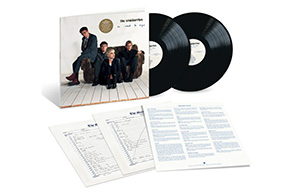





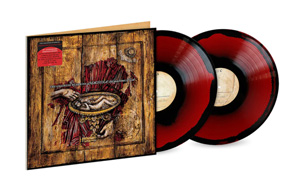
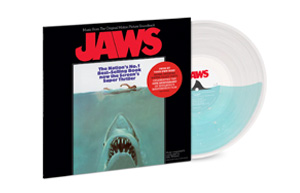
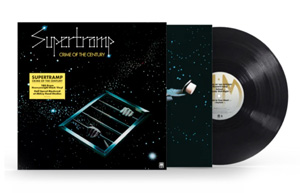
Topkat
November 8, 2019 at 6:07 am
A few corrections here:(1) LIONEL RICHIE did NOT compose The Commodores’ smash hit “LADY (YOU BRING ME UP) That song was composed by ANOTHER member of The Commodores,WILLIAM KING, his wife, Shirley, and Harold Hudson . Perhaps you’re confusing that song with the song simply entitled “LADY” which Richie wrote for The Commodores, who passed on it, and eventually became a huge hit for Kenny Rogers.
(2) FRANK WILSON did NOT compose “ALL I NEED” for The FOUR TOPS. He wrote it for The TEMPTATIONS. For THE FOUR TOPS , Frank and SMOKEY wrote the hit TITLE SONG from the “STILL WATERS” Album. (3) The OTHER members of THE MIRACLES frequently co-wrote hit songs with SMOKEY…an accomplishment for which they RARELY get due credit for today. Their names, PETE MOORE, BOBBY ROGERS, RONNIE WHITE and MARV TARPLIN, are on the writing credits of DOZENS of hits with SMOKEY, including hits by MARVIN GAYE, MARY WELLS,and THE TEMPTATIONS…as well as on their OWN group, THE MIRACLES. Miracles RONNIE WHITE and PETE MOORE also doubled as PRODUCERS as well. WITHOUT Smokey, Miracle PETE MOORE, along with Smokey’s replacement in The MIRACLES, BILLY GRIFFIN , wrote THE MIRACLES’ All-Time BIGGEST HIT: the 4.5 MILLION-SELLING #1 hit, “LOVE MACHINE” . (4) You can’t credit NORMAN WHITFIELD without also crediting BARRETT STRONG.(Yes, the SAME BARRETT STRONG who sang the hit “MONEY (That’s What I Want)”. The TWO of them TOGETHER wrote numerous hit recordings for THE TEMPTATIONS, MARVIN GAYE, and GLADYS KNIGHT & THE PIPS.
FloyJoy
October 25, 2020 at 12:59 am
Also, The MIrcles’ song, Tears Of A Clown” was already on The Mircles’ Album in 1967. Perhaps, Wonder changed some of the orchestration, arrangement or production but, WOnder did not write “The Tears Of A Clown” when EMI wanted a Mircles’ song released in England.
It was EMI that is soley responsible for the song’s relase not The Mircles or Motown, USA. Also, including Syreeta Wright as a major songwriter is misplaced; she was married to Stevie WOnder was going to replace Jean Terrell until Mary Wilson said, “No.”
Russ Terrana
July 12, 2021 at 12:04 am
I had the great fortune to be apart of the creative effort at Motown. I became Motown’s Chief Recording
Engineer and everyday was a joy to be there. The creative efforts of so many talented people was a never ending flood of quality and creative fun. The writers, producers and artists were a huge pleasure for me to be apart of that creative process. It was like a big family and everyone gave there all.
There will never be another Motown.
Russ Terrana
John Lester
October 5, 2021 at 5:44 pm
As usual, my idol Mr HENRY “HANK” COSBY is missing. I wish these article writers did their homework. I just despair at such a notable omission!
Celeste Moy
March 5, 2023 at 2:49 pm
Why isn’t Sylvia Moy, Motown’s first female songwriter/producer of such hists as Uptight, My Cherie Amour, It Takes Two, I Was Made To Love Her, etc, on your list?